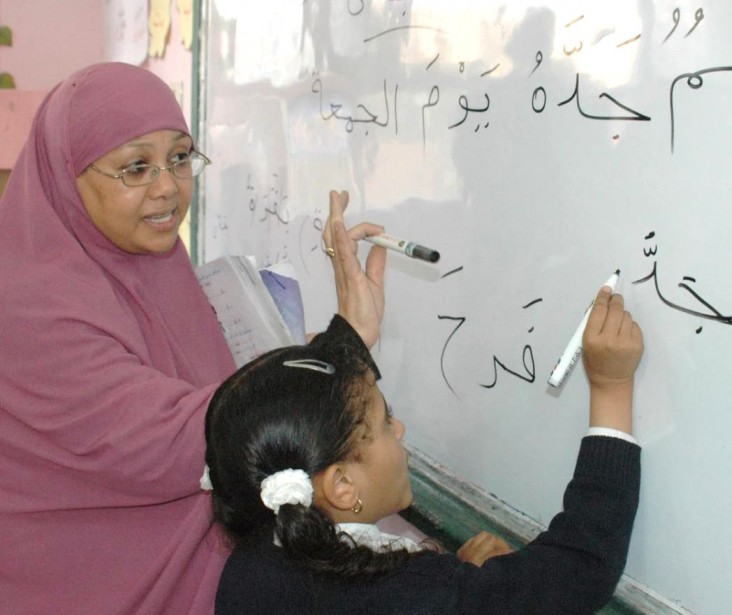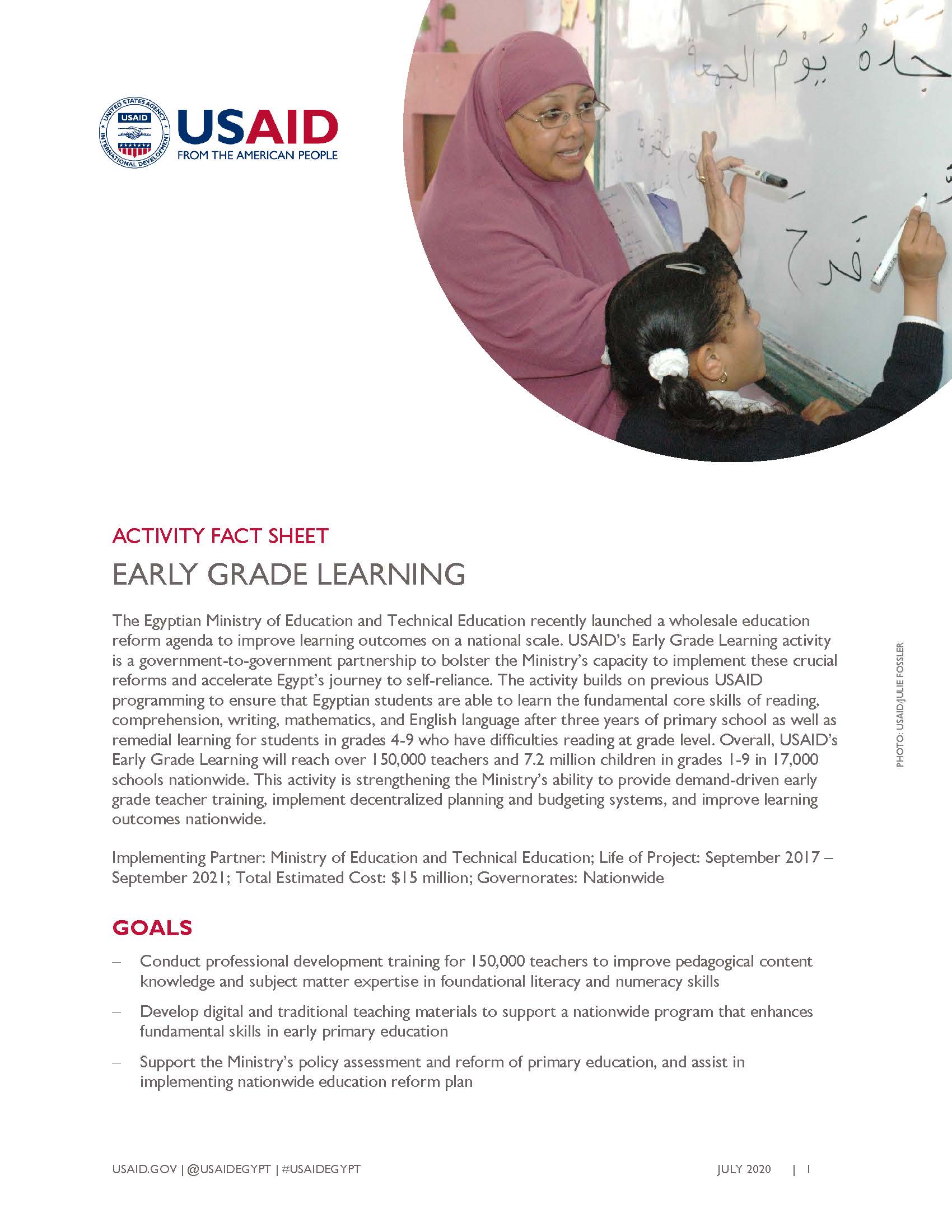Speeches Shim

The Egyptian Ministry of Education and Technical Education recently launched a wholesale education reform agenda to improve learning outcomes on a national scale. USAID’s Early Grade Learning activity is a government-to-government partnership to bolster the Ministry’s capacity to implement these crucial reforms and accelerate Egypt’s journey to self-reliance. The activity builds on previous USAID programming to ensure that Egyptian students are able to learn the fundamental core skills of reading, comprehension, writing, mathematics, and English language after three years of primary school as well as remedial learning for students in grades 4-9 who have difficulties reading at grade level. Overall, USAID’s Early Grade Learning will reach over 150,000 teachers and 7.2 million children in grades 1-9 in 17,000 schools nationwide. This activity is strengthening the Ministry’s ability to provide demand-driven early grade teacher training, implement decentralized planning and budgeting systems, and improve learning outcomes nationwide.
Implementing Partner: Ministry of Education and Technical Education; Life of Project: September 2017 – September 2021; Total Estimated Cost: $15 million; Governorates: Nationwide
GOALS
- Conduct professional development training for 150,000 teachers to improve pedagogical content knowledge and subject matter expertise in foundational literacy and numeracy skills
- Develop digital and traditional teaching materials to support a nationwide program that enhances fundamental skills in early primary education
- Support the Ministry’s policy assessment and reform of primary education, and assist in implementing nationwide education reform plan
RESULTS
- Trained 100,000 grade 1-3 teachers nationwide in the newly developed curriculum, equipping them with the skills and knowledge necessary to transition from a focus on standardized testing to one that promotes critical thinking and practical skills
- Trained 50,000 teachers to introduce remedial reading programs for underperforming students in grades 4-9 nationwide
- Produced and distributed more than 300,000 Early Grade Learning teaching manuals for teachers in all primary schools; manuals include strategies for experiential classroom instruction techniques that accelerate learning outcomes



Comment
Make a general inquiry or suggest an improvement.